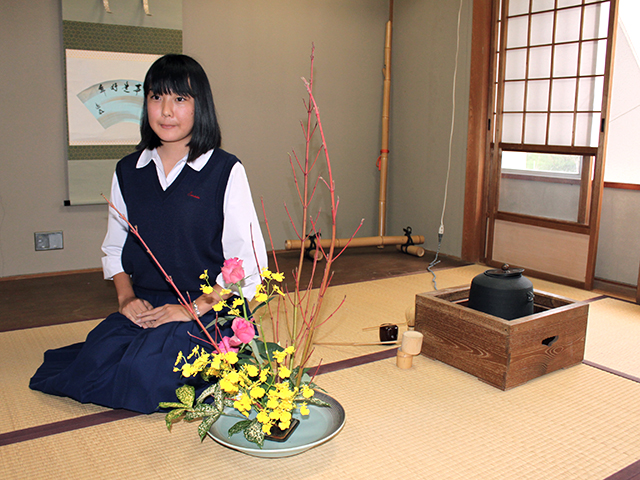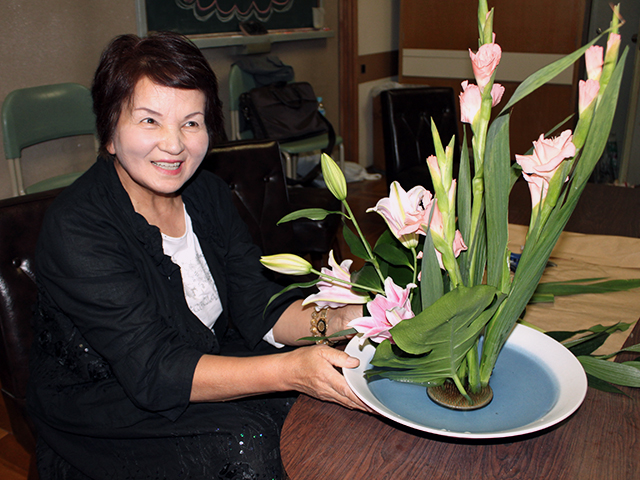Filtered By: Lifestyle
Lifestyle
Kado: A reflection of the Japanese way in flower arrangement
Text and Photos by DANESSA O. RIVERA, GMA News

Fourteen-year old Risa Yashima happily shares why she likes doing kado.
Even with all the technological advancements in Japan, 14-year old Risa Yashima has a passion for something as traditional as kado.
"As a teenager, I like to do modern things, but at the same time I would like to do something traditional. That is the reason why I am doing kado," she said in her native tongue.
Risa fulfills her passion through Sakado Club, an organization for those who want to try kado in Senboku Kita High School in Sakai City, Osaka Prefecture. She has been a member of Sakado Club for two years.
If you search Google on what kado is, it will redirect you to ikebana and describe it as the "Japanese art of flower arrangement."
But Sachie Osaki, the moderator of Sakado Club, said kado is more than just arranging and designing flowers in a certain way.
"There are two things: it's a kind of art and the other side is to learn Japanese manner, what is the polite way for a Japanese," she said.


Sachie Osaki, the moderator of Sakado Club, says kado is more than just flower arrangement; its the art of learning Japanese manner.
Schools all over Japan have several subjects teaching cultural and traditional activites like kado and help keep the Japanese culture alive, Ms. Osaki said.
"Japanese tradition is being passed from generation to generation forever," she said.
Kado became a personal hobby of Kazumi Fujiwara, English teacher at Senboku, when she realized the essence of kado.
"I used to teach kado club activities at another school. I just have to be there to observe or supervise," she shared.
"I realized that Japanese culture, which is traditional, is fantastic because it is beautiful and is really great. Tea ceremony is not just drinking and eating the sweets. Kado and ikebana, all are one set of Japanese hospitality," she added.
More than flower arrangement, kado is a kind of identity, Ms. Fujiwara said.


Japanese high school students demonstrating kado to Southeast Asian reporters.
"When I do kado, I really feel I am Japanese. I'm very proud of our kado, tea ceremony etc.," she added.
With all the modernization happening in the world, Japan should not be the only one preserving culture; this preservation should be a movement and decision by every nation, Ms. Fujiwara noted.
"The world is really globalized, we have to respect our own culture. All countries should do the same with their own culture," she said.
This can be done through education, Ms. Fujiwara said. "Students should understand the culture. Because when we respect our own culture, we can respect others' culture as well." — VC, GMA News
The media tour for the 2014 Sakai ASEAN Week from October 7 to 13 was organized and sponsored by the city government of Sakai in cooperation with several private groups.
More Videos
Most Popular




